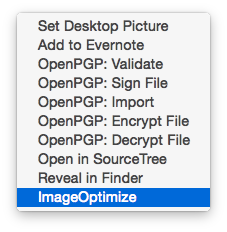Front end performance for the lazy
(in a good way)
Front end performance
- Involves getting the markup and assets to the user and getting it rendered ASAP
- Based around optimisation; size of assets, order in which they are loaded and/or executed
- Especially important on mobile - devices are low powered & networks flaky - but users expect snappy performance
- Has an impact on user experience (£$£$), and consequently search engine rankings
in Drupal specifically
- Used on drupal.org
- Combines CSS and JS files intelligently
- Fewer HTTP requests, good for performance
- Core does this but at a per-page level
- Advagg based on rules that decrease chance of the user needing to download many aggregate files
Adv. CSS/JS Aggregation
- Compresses JS using a Google service
- Sends files to their API or use a local Java library
- Savings made by rewriting vars & removing whitespace
- Savings are ~ 20%
-
The advanced compilation level breaks core JS - go for the medium option
GOOGLE CLOSURE COMPILER
more general tools
Grunt
- Automates boring repetitive stuff and is great
- Most used for minification, Sass etc but huge ecosystem
-
Modernizr
- Reduces file size
- Reduces JS running
- Removes manual task
-
Uncss
- Removes bloat
- Great for frameworks
module.exports = function(grunt) {
grunt.initConfig({
pkg: grunt.file.readJSON('package.json'),
modernizr: {
dist: {
// [REQUIRED] Path to the build you're using for development.
"devFile": "lib/modernizr-dev.js",
// Path to save out the built file.
"outputFile": "build/modernizr-custom.js",
// Based on default settings on http://modernizr.com/download/
"extra": {
"shiv": true,
"printshiv": false,
"load": true,
"mq": false,
"cssclasses": true
},
// Based on default settings on http://modernizr.com/download/
"extensibility": {
"addtest": false,
"prefixed": false,
"teststyles": false,
"testprops": false,
"testallprops": false,
"hasevents": false,
"prefixes": false,
"domprefixes": false,
"cssclassprefix": ""
},
// By default, source is uglified before saving
"uglify": true,
// Define any tests you want to implicitly include.
"tests": [],
// By default, this task will crawl your project for references to Modernizr tests.
// Set to false to disable.
"parseFiles": true,
// When parseFiles = true, this task will crawl all *.js, *.css, *.scss and *.sass files,
// except files that are in node_modules/.
// You can override this by defining a "files" array below.
// "files" : {
// "src": []
// },
// This handler will be passed an array of all the test names passed to the Modernizr API, and will run after the API call has returned
// "handler": function (tests) {},
// When parseFiles = true, matchCommunityTests = true will attempt to
// match user-contributed tests.
"matchCommunityTests": false,
// Have custom Modernizr tests? Add paths to their location here.
"customTests": []
}
},
concat: {
dist: {
src: ['src/js/jquery.js', 'src/js/intro.js', 'src/js/main.js',
'src/js/outro.js'
],
dest: 'dist/build.js',
}
},
uglify: {
dist: {
files: {
'dist/build.min.js': ['dist/build.js']
}
}
},
imagemin: {
options: {
cache: false
},
dist: {
files: [{
expand: true,
cwd: 'src/',
src: ['**/*.{png,jpg,gif}'],
dest: 'dist/'
}]
}
}
});
grunt.loadNpmTasks('grunt-contrib-concat');
grunt.loadNpmTasks('grunt-contrib-uglify');
grunt.loadNpmTasks('grunt-contrib-imagemin');
grunt.registerTask('default', ['concat', 'uglify', 'imagemin']);
};Grunt
- Well worth learning, even for small things like side projects
- Easier than it seems to get started and there are loads of resources out there
- Chris Coyier article is a good one

Cloudflare

Cloudflare
CDN
Caching
Minification
SSL (ish)
Responsive
images

google Pagespeed module
- Install for nginx or Apache
- Runs a huge number of optimisations (called filters) in the background
- Optimisations targeted against the PageSpeed tests that Google runs
- Some interfere with or duplicate Drupal functions but there is information on Drupal.org about avoiding this
Google pagespeed module

- Inline critical css
- Rewrite internal and external JS (with Closure Compiler)
- Canonicalise JS libraries
- Inline small amounts of JS, CSS or web fonts (reduce requests)
- Use HTML5 localstorage to cache resources
- Inline images to data URIs (watch out on mobile)
- Resize + compress images based on device
- Lazy load images with low quality previews shown first
- Automatically sprite images
- …and loads more.
GOOGLE PAGESPEED MODULE
Imageoptim

Front end performance for the lazy
By Phil Wolstenholme
Front end performance for the lazy
NWDUG lightning talk
- 726


